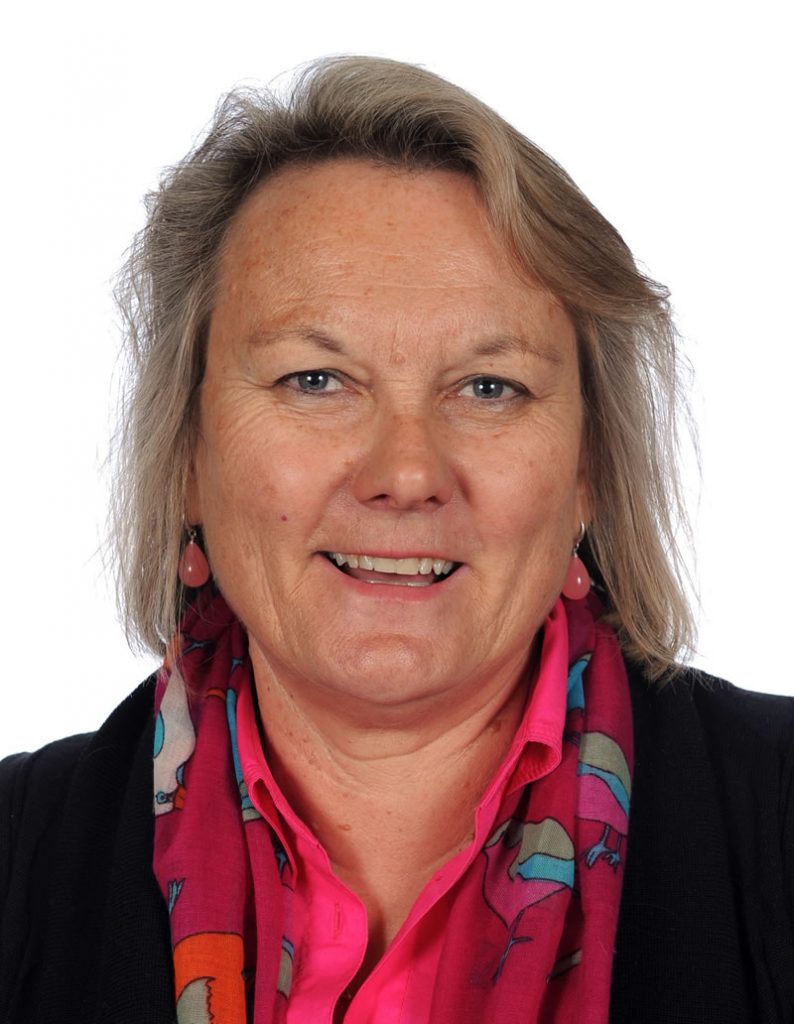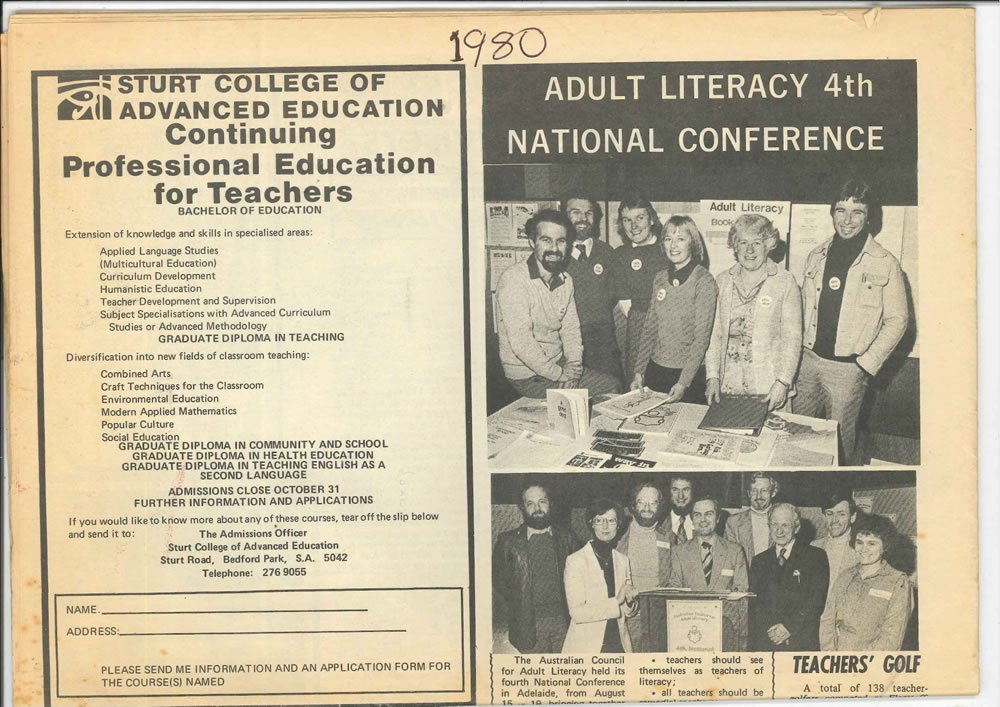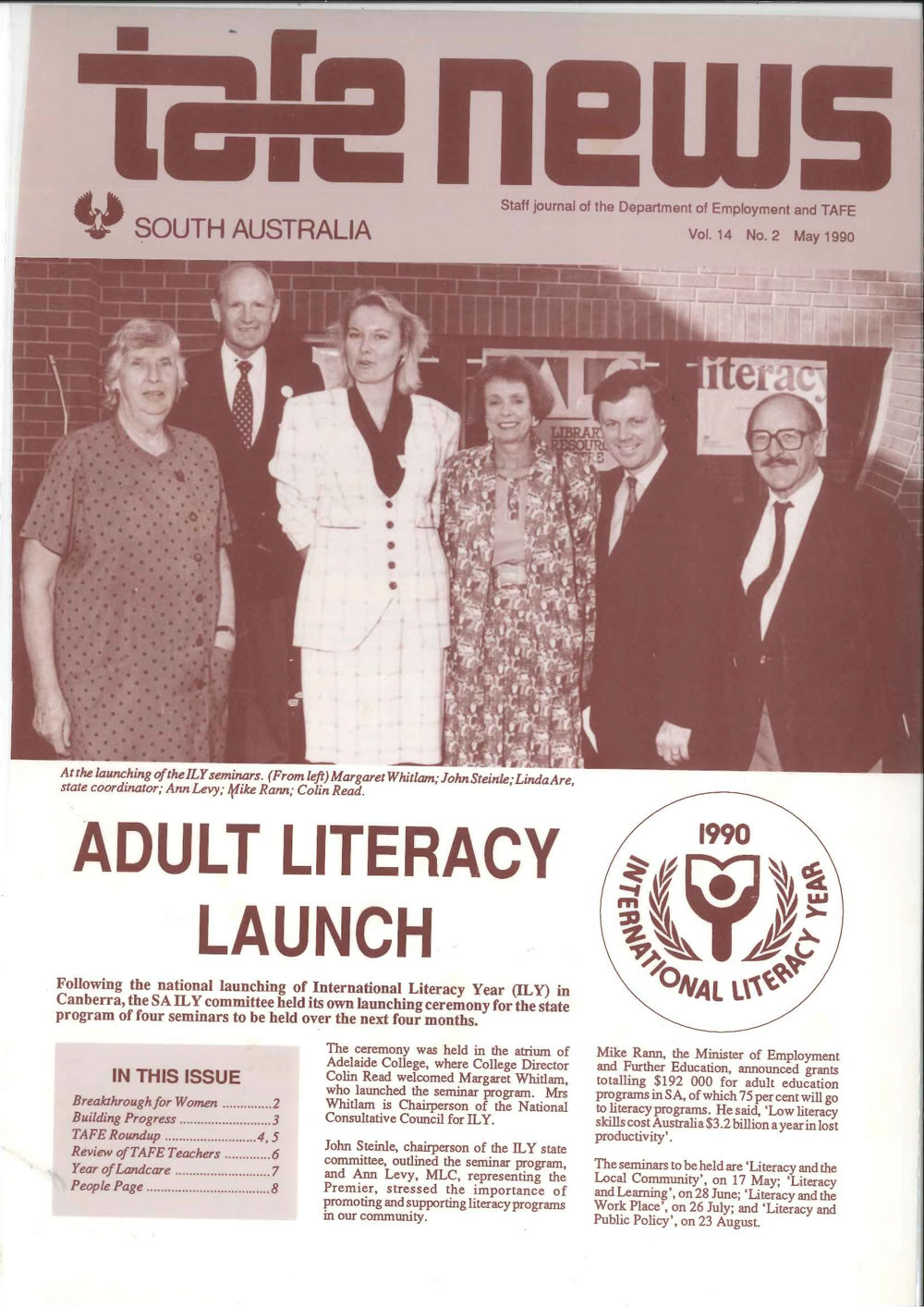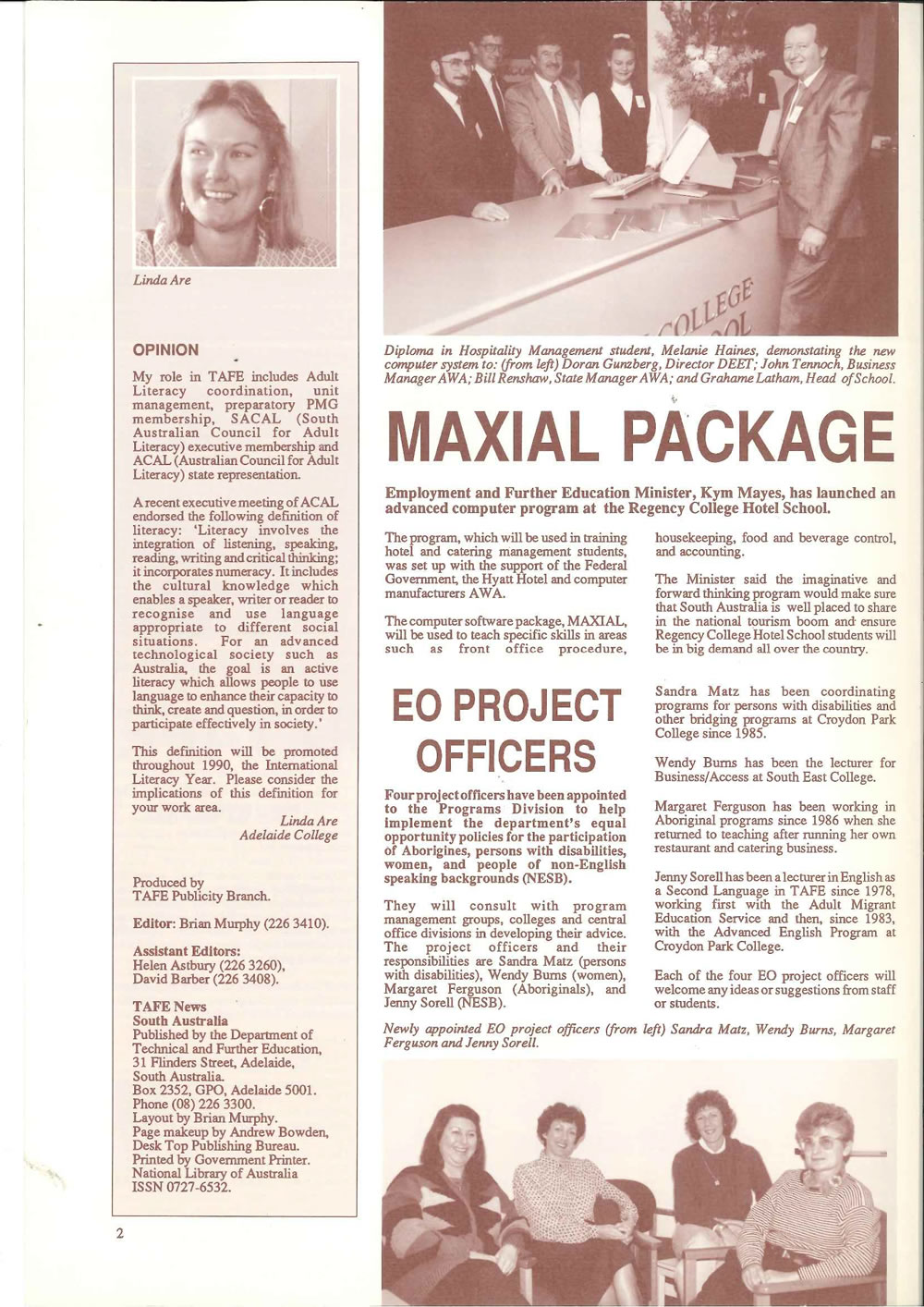Reflections on the field
The adult literacy field in Australia is losing many of its stalwarts along with it a great deal of wisdom and experience. Many of our most experienced specialists are either retiring or moving into positions with less educational focus. Many have also contributed enormous amounts of time, hard work and savvy to building and maintaining our field through ACAL, state councils, and/or teacher training.
We would like to document and recognise the contribution of our ‘elders’ through a series of short profiles. This may also help us to build the case for the renewal of the adult LN specialist workforce in these trying times.
Thank you Linda Are, from SA, for being our first interviewee with your reflections on the field as you head into retirement.
 Linda Are
Linda Are
TAFE SA
Tell us about your career in adult literacy
My career in TAFESA has spanned over 40 years. I commenced as an Hourly Paid Instructor in 1976 in the capacity of an “Assessment Officer” and Tutor in the Adult Literacy Unit in DFE (Department of Further Education) … I had left the University of Adelaide as a graduate with a BA majoring in Psychology and Politics and had completed the course work for the Post Graduate Diploma in Psychology. My roles in TAFESA have been varied, from working as an HPI tutor to being a full-time co-ordinator of Adult Literacy programs at Port Adelaide TAFE to working with adults completing their Adult Matriculation (Year 12) at the Port, to a research project officer for a “student Selection processes; it was always a rewarding career working with highly motivated adult students.
In 1988 I won the position of ‘State Co-ordinator Adult Literacy and Numeracy’ …this gave me the opportunity to travel widely across the state and visit all TAFE campuses and to become more directly involved in curriculum development and staff development. I also completed a Graduate Diploma of Education (Literacy and Language Education) conferred in 1991 and then (much later) went on to complete a Master of Education I (Teaching English to Speakers of Other Languages) conferred in 2007.
In 1989 I also became president of SACAL in preparation for the 1990 ACAL Conference held in Adelaide that Year!
The International Literacy Year (1990) was a wonderful year which opened up our state and the nation to extra funding allocations (the Australian Language and Literacy Policy, ALLP, and consequent funding) and a growth of sites delivering Adult Literacy programs. During that year I had received a ‘Certificate of Merit for Literacy Advocacy in 1990’.
During 1991-1995 with the additional national and state funding (National Collaborative Adult English Language and Literacy Strategy) set up a State Unit for Adult Literacy and I was involved in forging ACE (Adult Community Education) sector partnerships and establishing quality assurance committees.
In 1996 the State Unit was considered an ‘historic model’ and I was re-located to Adelaide City campus. This led to an involvement with more management duties for the local campus and building the Literacy programs in the city location.
In 2001 I became the Acting Education Manager and held that position till 2005. During my time as the EM I was able to support Literacy & Numeracy Lecturers to expand their delivery to include Workplace Education, based on the Victorian model.
In July 2006 I was able to resume my fulltime role in an educational as the Principal Lecturer in Literacy and state convenor of the Quality Assurance Group. This role has continued to evolve and grow to the point where I now know it is time to move on and for a younger generation to step into the role of Principal Lecturer. I have been very lucky 😊
What attracted you to the field in the first place?
I had completed my tertiary studies and realised I was no longer interested in pursuing a career in psychological counselling or clinical research and so I decided I would use my skills for new directions…DFE was looking for a person to assess Reading Levels. This sounded interesting and was relevant to my life experiences; in that my Estonian parents were refugees who had originally struggled with reading and writing in English.
What changes have you seen?
When I began full-time work at the Port Adelaide campus it was called the Port Adelaide Community College of the Department of Further Education…the many name changes including Institute of TAFE indicated a shift away from community values to industry values.
What do you see as the strengths of the field?
The commitment and passion of the Lecturers to teaching their students and in researching the best future pathway’s for students t to build their skills for community participation, further training and or directly prepare for employment in specific industry areas. The impressive flexibility of the L&N Lecturers to respond to changing times and requirements for our state and national L&N levels and to update their qualifications regularly! This has ensured the survival of the L&N programs to this day …as the ‘saying’ is… those who will survive the best are those who can adapt to change …and as a field we have certainly learnt to do that!!
Have students changed?
The diversity of students has increased…younger students, more long term unemployed older students, students with disabilities’ and mental health issues and a greater number of CALD students who have been in long term Australian residents but require additional Literacy and/or Numeracy skills.
How can we better attract new teachers into the field?
Increased employment security. Encouraging university graduates to complete L&N specialisations in the Adult Sector.
How do you see the future?
Increased flexibility of delivery, more short courses targeting specific vocational program entry requirements, increased focus on employment outcomes and now greater Digital Literacy expectations and possibility of future online interactive improvements …the younger students all have these extra digital skills!
Linda – we wish you all the best for the future and a happy retirement. Thank you for sharing your story and for your amazing contributions to adult literacy and numeracy in Australia.
Here’s some pieces from Linda’s archive



